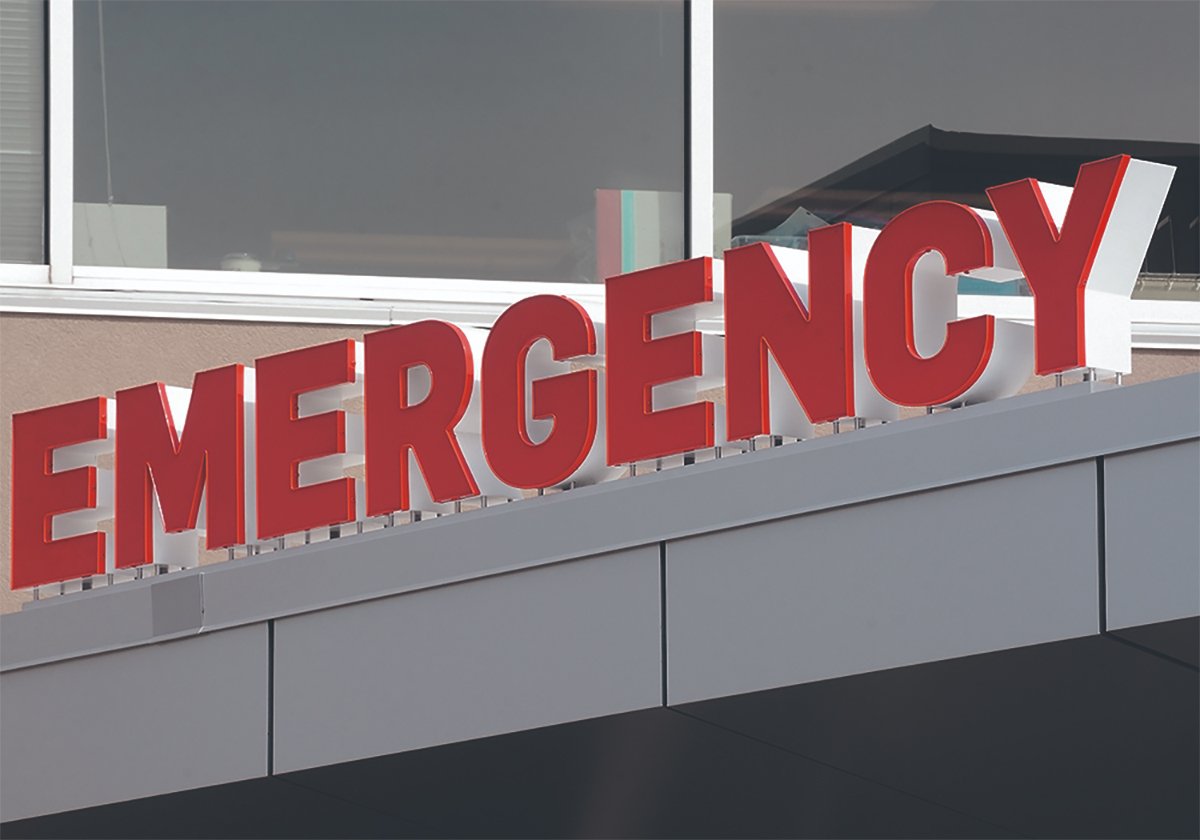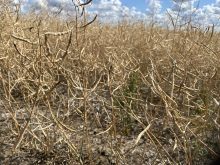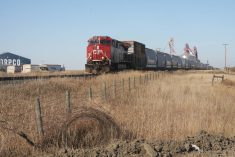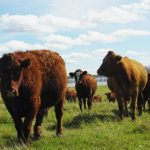ALTHOUGH you couldn’t tell from the mainstream media, those of us watching the farm press know that farmers are getting a lot more attention this election than they have for a long time.
Google “farm” and “election” and “Canada” and the difference is readily apparent. Leading up to the 2004 election, the preponderance of stories bemoaned the fact that farm issues were getting short shrift. This time, the situation is quite different.
In this election, farm platforms have been announced with relative fanfare and leaders are competing with one another for farm support.
Read Also

Rural emergency room closures continue to be vexing problem
Staffing issues are at the root of disruptions and closures in hospital emergency departments, both in rural and urban Canadian locations.
OK, so some of the positions put forward by Canada’s political leaders aren’t exactly consistent.
Harper’s position “for” supply management and “against” the wheat board is a case in point.
Facing concentrated players pre and post farmgate, sustainability means strengthening market power. Supply management and the wheat board’s central selling desk are two approaches to that same goal.
Farmers in Canada’s poultry and dairy sectors are among Canada’s most successful, independent and economically sustainable producers.
Thanks to the strict standards of the Canadian Wheat Board, Canada is the only country to regularly have its grain shipments accepted in many foreign ports based on Canadian grade certification alone, with no inspection required.
And OK, so some of the positions also seem a tad hypocritical.
Martin vows solid support for export market development yet it was his government that failed to support the legitimate export market rights of Canada’s ranchers in the face of Washington’s blockade against Canadian beef and cattle, which violated the North American Free Trade Agreement.
And why, exactly, has this failure to protect not become more of an election issue? If politicians feel they can get away with it, which commodity is next?
Trade skirmishes happen. The rights of farmers must be defended. Ottawa’s roll-over-and-play-dead response to the BSE crisis warrants slaps on the wrists of all politicians because it was, after all, a minority government. They were all in charge.
And OK, so some of the positions seem a little opportunistic.
Every farmer can recite at least 10 Canadian Agricultural Income Stabilization horror stories. Too many farmers have lived them.
But farmers I have spoken with feel Harper’s election promise to abolish CAIS is reactionary.
In the words of one: “We can’t be expected to switch from one program to another at the whim of politicians playing political one-upmanship. Farmers need to make long range, sustainable decisions and that requires long range, consistent policy and programs.”
Canada’s farm organizations have spent three years of meetings fine-tuning the CAIS program to better respond to the needs of the farm community.
Families across Canada have spent long winter evenings converting farm records and accounting software to CAIS-compliant formats.
CAIS clearly requires critical evaluation, but the political hustings is hardly the time and place. For a politician disconnected from its complexities to pledge CAIS’s demise in the heat of an election campaign seems foolhardy.
Good on them for supporting ethanol use and greenhouse credits. Let’s see a commitment to support them at levels that actually reflect farmer contributions, not simply what’s left on the table after concentrated players take their share of the pie.
Other issues remain noticeably absent from the lips of both farmers and politicians. In my opinion, rescuing sovereignty over Canada’s water tops the list.
They say any attention is good attention so long as they spell your name right. And farmers are certainly getting a lot of ink this time around.
But without content, commitment and accountability, good ink is not worth the paper it’s printed on.
So how to make the last week count? Farm organizations have done their bit. Now, in the last week and a half of the campaign, it’s up to us.
Take a few moments to call your farm radio station. Write a letter to the newspaper. Call the top two or three candidates in your riding.
Attend that one last debate.
Stand up and tell them that in this election, your vote and those of your family members are with the politician who will promise your kids a future on the land and who can deliver on that promise once in office.
Ask them how many farmers are candidates in their party and how many seats they expect to be held by farmers this time around.
Ask them what they are going to do to improve on that next time.
In a summer poll, 73 percent of Canadians said they didn’t believe promises made by politicians and 56 percent said they don’t trust politicians.
Can you imagine if, in the next week, each farm family in Canada agreed to undertake just one of the above acts to deliver the message to all politicians that Canada’s farm community really is watching? With high expectations this time?
Partisan politics is a four-year game. Sustainable farm decision-making is the work of a lifetime.
Over the next week and a half, let those who seek your vote know that respect for farming is the key to sustainable governance, and that in this election and the days that follow, farmers will hold politicians to account.















